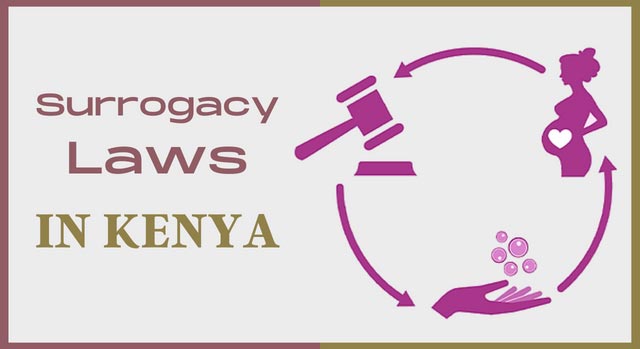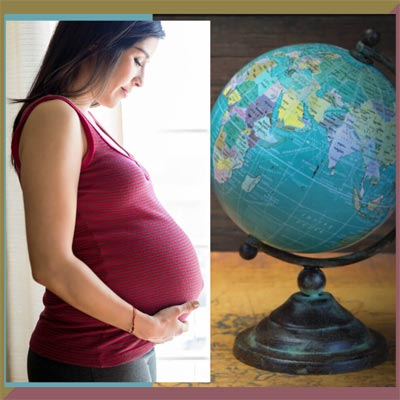Surrogacy has proved its prowess as a perfect godsend for many intended parents worldwide who are unable to become parents naturally. That way, it has come up as a ray of hope for all those gay couples and single parents who cannot conceive naturally. Although many nations already have well-defined surrogacy rules and regulations, surrogacy laws in Kenya are still an exception and lack any particular legislation. Still, Kenya is growing in popularity among intended parents despite the absence of a legal framework. In the following post, we will look through the same reasons in detail.
Surrogacy laws in Kenya are non-existent
Kenya currently does not have any particular legislation governing surrogacy. This implies that neither express approval nor prohibition of surrogacy arrangements is provided by any legislation. Because there is so little legal certainty, surrogacy functions in a murky region. Even though there is little impact of the same on the popularity of surrogacy, it is still a concern. There are several main causes of this lack of regulation:
Legislative Priorities: Kenya has various social, economic, and political issues, much like many other developing countries. Legislative objectives of the government frequently center on infrastructure, healthcare, and education, ranking surrogacy lower on the list of pressing concerns.
Cultural Aspects: Traditional ideas about family and reproduction are still in vogue in many areas of Kenya. Adoption regulations in this field may be challenging due to societal opposition or disagreement on the idea of surrogacy.
Emerging Issue: In Kenya, surrogacy has only lately drawn attention from around the world. That said, there might be drafts that haven’t been formalized into law or ongoing talks; the legal system might just not have caught up with this developing problem.

What makes Kenya popular among the global intended parents?
Kenya draws intended parents from all over the world even in the lack of particular surrogacy legislation. There are several contributing reasons to this tendency:
Cheaper surrogacy options: Among the strongest arguments is cost-effectiveness. In nations like the United States where regulations are in place, surrogacy can be prohibitively expensive. Medical bills, surrogate pay, and agency fees are all much less in Kenya overall. For many intended parents who might not have the money to pursue surrogacy in more expensive nations, this makes it an affordable choice.
Excellent Medical Care: Kenya offers a number of respectable fertility clinics that provide excellent medical treatment. Many times, these clinics have highly qualified staff members and cutting-edge medical equipment, which guarantees a safe and efficient surrogacy procedure. So, while surrogacy is already cheaper in this nation, the quality of medical services has worked as an added advantage.
Easy availability of Surrogates: Surrogates are easily available and accessible in Kenya, although in many nations it can be difficult to get consenting surrogates. With so many women ready to be surrogates available in Kenya, prospective parents may face lesser waiting times for their screening.
Legal Flexibility: Sometimes there is a benefit to the absence of certain surrogacy legislation and Kenya is a living proof. That said, absence of strict rules allows intended parents and surrogates to create agreements that meet their requirements. This adaptability can speed up the procedure and make it more flexible to suit particular situations.
Travel and culture: Kenya is a stunningly beautiful nation with a rich cultural legacy. Hence, time spent in Kenya, combining their surrogacy experience with the chance to see a new nation, may appeal to intended parents.
Ongoing Challenges and Risks
Though there are obvious benefits, the absence of a legal framework in Kenya makes surrogacy in that country fraught with risks and difficulties of its own:
 Legal Uncertainty: There is neither standard protocol nor legal protection for surrogacy agreements because there are unclear laws. Particularly with relation to parental rights and child custody, this might result in disagreements and difficulties. Yet, while connecting with legal professionals, you can work along in this direction.
Legal Uncertainty: There is neither standard protocol nor legal protection for surrogacy agreements because there are unclear laws. Particularly with relation to parental rights and child custody, this might result in disagreements and difficulties. Yet, while connecting with legal professionals, you can work along in this direction.
Also, enforcing agreements might be challenging without legal support. Should disagreements surface, intended parents and surrogates may find themselves vulnerable without a formal means of resolving the matter.
Moral Issues: Kenya’s uncontrolled surrogacy industry begs moral concerns. Moreover, exploitation is a possibility, particularly for women from lower-income backgrounds who could be forced into surrogacy under difficult circumstances.
Health Risks: While there are respectable medical institutions, not all clinics may adhere to international norms. To protect the surrogate and the child, intended parents must do extensive study and select trustworthy clinics.
Tips for Intended Parents Thinking About Surrogacy in Kenya
Considering Kenya for your surrogacy journey? Take the following precautions to reduce risks and guarantee a successful result:
Research Carefully: Look into the reputation of Kenyan surrogacy agencies, clinics, and surrogacy arrangements. Find success stories, endorsements, and reviews to determine the services’ dependability and standing.
Legal Advice: See a lawyer conversant with surrogacy legislation in Kenya and your own country. They can create draft understandable agreements and assist you in negotiating the legal complications.
Choose Reputable Clinics: Make your choice among renowned clinics for excellent treatment. Check their qualifications as a staff, their certifications, and the state of their facilities.
Clear Agreements: Collaborate with your attorney to draft thorough agreements that address every facet of the surrogacy process, including financial arrangements, medical treatment, and parental rights.
Support for Surrogates: Make sure the surrogate is given enough attention and support all during the procedure. This covers proper pay, medical attention, and psychological assistance.
Plan for the Unexpected: Make backup plans and be ready for any obstacles or challenges on your way through. For unforeseen conflicts or medical emergencies, this could include legal arrangements.
Final words
The absence of particular surrogacy laws in Kenya offers intended parents from all over the world both possibilities and difficulties. Still, we can say that it is a desirable destination because of the quality of medical care, surrogate availability, and affordability. However the ethical and legal ambiguities need serious thought and preparedness. Through expert direction and well-informed actions, intended parents can negotiate the challenges and maybe realize their ambition of becoming parents through surrogacy in Kenya.


No Comments